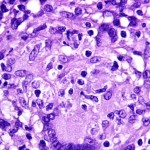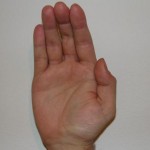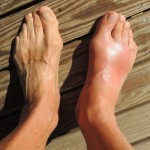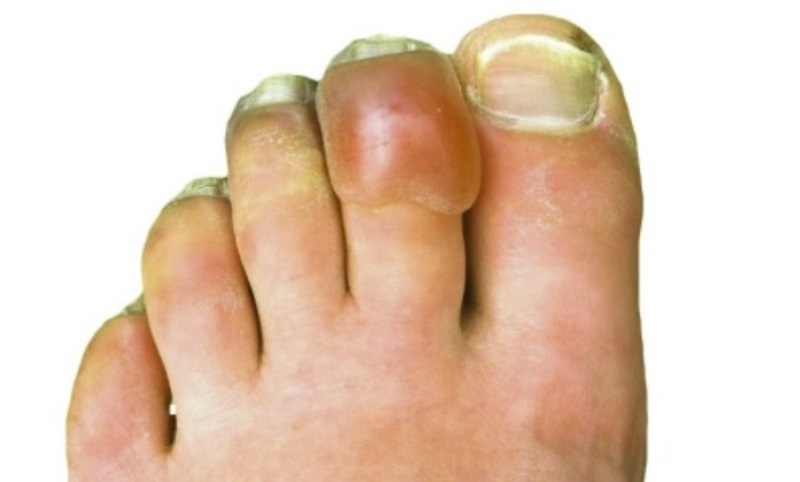A chronic inflammatory condition, Rheumatoid arthritis or RA generally affects the lining of joints like the fingers and toes. As we age, RA can even affect the bigger joints, such as the knees, ankles, shoulders and hips. The final consequence of RA is bone erosion and joint deformity.
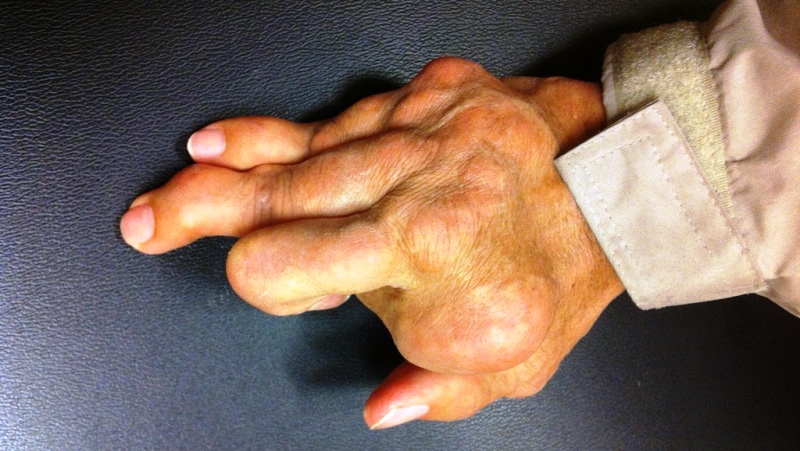
Image source: Google Copyright-free Image, under Creative Commons License
According to Arthritis Foundation,
“Rheumatoid arthritis (RA) is an autoimmune disease in which the body’s immune system – which normally protects its health by attacking foreign substances like bacteria and viruses – mistakenly attacks the joints. This creates inflammation that causes the tissue that lines the inside of joints (the synovium) to thicken, resulting in swelling and pain in and around the joints. The synovium makes a fluid that lubricates joints and helps them move smoothly.”
The Centers for Disease Control and Prevention, after research found that in 2007 about 1.5 million people in the U.S. alone suffered from RA.
Suggested read: 11 superbly effective home remedies for loss of taste and smell
Causes of rheumatoid arthritis
Rheumatoid arthritis is more common in women than in men. Also, people over the age of 4 are more likely to develop it, though kids and young people also can have RA.
Other causes of rheumatoid arthritis are family history, genes, excessive smoking, chronic periodontal diseases, and exposure to silica.
RA is an autoimmune illness. The immune system, in this case, mistakenly attacks membrane linings surrounding joints. It is still not known what causes this process.
Symptoms of rheumatoid arthritis
Symptoms of Rheumatoid arthritis include inflammation of body tissues causing the muscles and joints to ache. Also, there can be stiffness, fatigue, swelling among other symptoms that come and go.
According to the Mayo Clinic,
“Early rheumatoid arthritis tends to affect your smaller joints first — particularly the joints that attach your fingers to your hands and your toes to your feet.
As the disease progresses, symptoms often spread to the wrists, knees, ankles, elbows, hips and shoulders. In most cases, symptoms occur in the same joints on both sides of your body.
About 40 percent of the people who have rheumatoid arthritis also experience signs and symptoms that don’t involve the joints.”
Medicines and home remedies for rheumatoid arthritis provide relief; however, the cure is not none, yet.
Home remedies for rheumatoid arthritis
1. Exercise
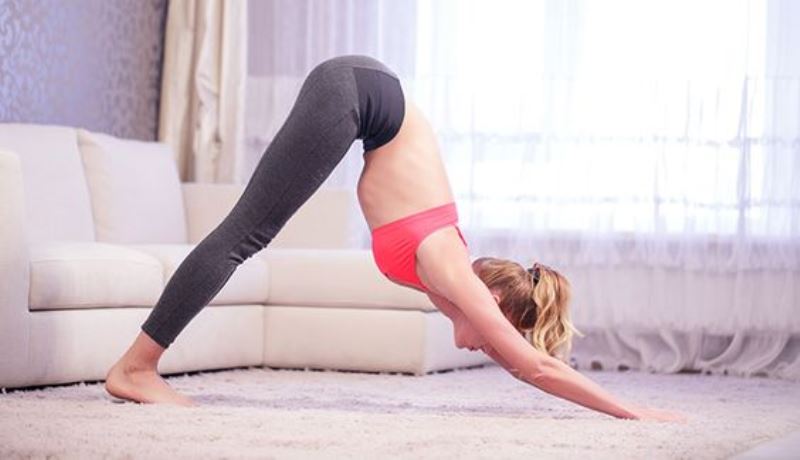
Image source: Pinterest
One of the basic ways to fight the symptoms of RA is physical exercise. By working out, you can prevent fatigue, strengthen your muscles and also increase the range of motion of the affected parts.
If you have not yet contracted this disease, you can reduce its risks by exercising. Here are some of the most helpful exercises,
- Try range-of-motion work outs for half an hour a day.
- Exercises to strengthen the muscles, also called strengthening exercises, should be performed three times a week.
- Cardio and aerobic exercises, also called endurance exercises should be performed for half an hour, three times a day.
Before starting this exercise, we suggest you consult a certified physical trainer to workout with.
2. Hot and Cold Compresses
Another powerful remedy for RA is alternating hot and cold compresses. This remedy helps deal with symptoms of RA. The hot compress reduces pain as it relaxes the sore muscles and joints. The cold compress will reduce inflammation and joint swelling.
Remedies
- For the hot compress, wrap a hot water bag in a clean towel.
- For the cold compress, wrap 7 to 8 ice cubes in another towel.
- Now place the hot compress on your affected joints. Keep it on for 3 minutes.
- Now replace it with the cold compress.
- Keep alternating.
- Perform this for 15 to 20 minutes, a few times a day, until you feel relieved.
You can also use the hot and cold compresses separately. Also, if the affected area is red and irritated, then do not use hot compress. And if you have circulatory problems, then do not try cold compress.
3. Fish Oil
According to studies, fish oil helps get rid of the symptoms linked to RA, such as morning stiffness and pain in the joints. Also, it contains EPA and DHA, which are essential omega-3 fatty acids. The oil has anti-inflammatory properties and protects against heart diseases, which those with RA have a risk of developing.
Remedies
- Consume 2.6 grams of essential fish oil, two times, on a daily basis. The oil should contain 30% of EPA/DHA.
- You can also include salmons, tunas and other cold water fishes in your daily diet.
4. Apple Cider Vinegar

Image source: Google Copyright-free Image, under Creative Commons License
Another very effective home remedy for rheumatoid arthritis is apple cider vinegar. It provides relief from a number of symptoms that we see when one has RA. Apple cider vinegar is rich in calcium, magnesium, potassium, phosphorus, among other important minerals This helps reduce inflammation, thereby providing relief from joint and muscle pain.
Remedies
- Heat a cup of water.
- To this, add two teaspoons of concentrated apple cider vinegar. Also add a teaspoon of honey. Mix well. Drink this solution, once every day.
- You can also apple cider vinegar on the affected area, and massage some lukewarm castor oil on top of it. Do this every night, before hitting the sack.
Suggested read: All you need to know about how to stop nose bleeds using home remedies
5. Garlic
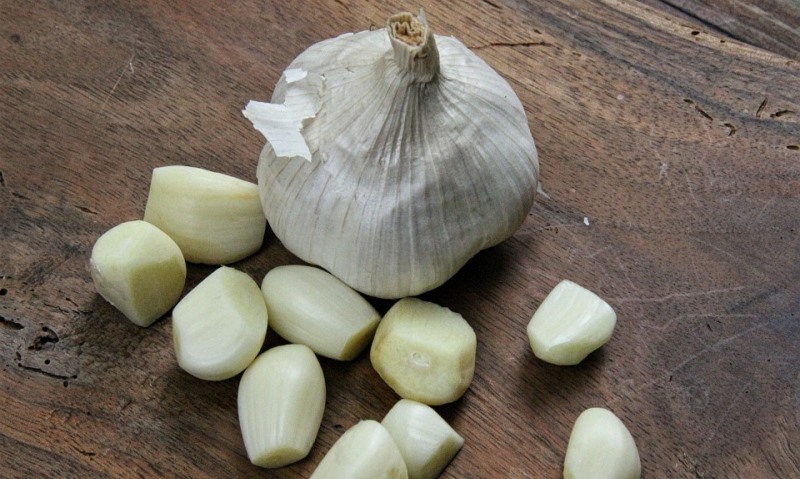
Image source: Google Copyright-free Image, under Creative Commons License
Garlic has anti-inflammatory properties, which makes it a great remedy for RA. It also inhibits the release of pro-inflammatory substances, such as, cytokines. Garlic helps reduce pain in the joints and swelling. It strengthens the immune system and helps fight free radicals.
Remedies
- Every day, eat 2 garlic cloves.
- You can also take garlic supplements, but for the correct dosage, consult a doctor.
6. Epsom Salt
Epsom salt is a great remedy for RA and symptoms associated with it. It is a great source of magnesium, and so, it regulates the pH levels in the body, which in turn, helps with morning stiffness and pain in the joints.
Epsom salt is also great for bone mineralization.
Remedies
- Draw a warm bah for yourself.
- Add two cups of Epsom salt to the water.
- Soak yourself in the water for half an hour.
- You should do this three times a week, for best results.
7. Ginger

Image source: Pixabay, under Creative Commons License
Ginger is used for inflammatory illnesses such as RA. A compound of ginger, gingerol has natural anti-inflammatory properties, and reduces swelling caused by RA.
Remedies
- On the affected area, rub ginger oil. Now expose the area to the sun rays for about 10 to 15 minutes. Follow this with a warm bath. You should do this on a daily basis.
- You can also chew fresh ginger slices, every day.
- Add ginger slices to your beverages or your food during cooking.
8. Massage
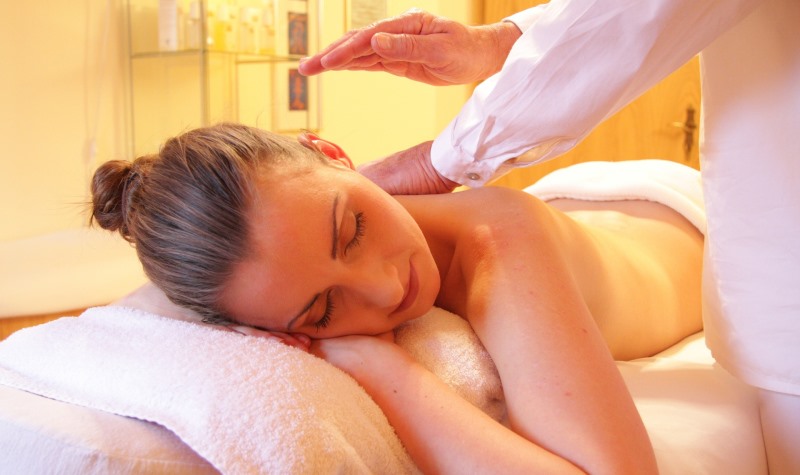
Image source: Pixabay, under Creative Commons License
Massage gently to relax the stiffness in your muscles. It also provides relief from your pain caused by RA.
Massage also improves circulation of blood, which alleviates the discomfort and inflammation.
Remedies
- To a cup of mustard oil, add 10 grams of camphor. Now heat the oil until the camphor dissolves in it. Once the oil cools down, apply it on the affected areas and massage lightly, in gentle strokes.
- You may also add about 6 to 8 drops of lavender essential oil to warm olive oil and massage the affected areas.
A word of cation: If your muscles feel to tender, then avoid massage as it can cause more harm.
Suggested read: 10 of the most effective home remedies for milia
9. Evening Primrose Oil
A plant oil, evening primrose oil, reduces inflammation, pain and morning stiffness. It contains the essential fatty acid, Gamma-linolenic, which reduces intensity of symptoms associated with rheumatoid arthritis.
Take 550 mg to 2.3 g in divided doses, through the day. Before taking this medication, consult a doctor because it can interfere with your other medications, if there are any.
Additional Tips
- Every day, move the joints that are affected by RA, through a full range of motion. Do this once every day. If you feel pain, do not overdo.
- Do not strain your muscles.
- You need to come up with a way of using your affected parts so that you do not strain the joints.
- Use devices or tools to perform day-to-day tasks.
- Whenever you feel tired, immediately relax.
- While you work, be sure to take short breaks every hour or two.
- Try not to keep the affected parts in the same position for too long.
- You need to come up with a better diet. See whether you are getting enough vitamins D and C, calcium and magnesium. Also, you need to include foods that are rich in potassium and omega-3 fatty acids.
- If you are overweight, then you need to lose weight. This will instantly make your joints feel better.
- You need to quit smoking altogether to reduce risks of RA.
- Stop drinking too as it worsens RA symptoms.
- To bolster your immune system, join a laughter club, and try to keep a positive attitude. This will distract you from the pain.
- Every day, eat some canned or fresh cherries. This will help you fight the symptoms of rheumatoid arthritis.
- Before hitting the bed, each night, draw yourself a warm bath. This will improve your sleep cycle.
- You should drink 3 to 4 cups of green tea, every day.
- Try acupuncture to reduce pain and relax the body.
Did you find this guide on home remedies for rheumatoid arthritis useful? Let us know in the comment section below.
Featured image source: Google Copyright-free Image, under Creative Commons License




